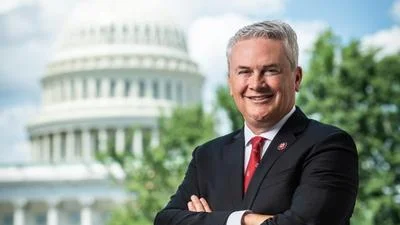Energy and Commerce Committee Chairman Frank Pallone, Jr. (D-NJ) delivered the following opening remarks at a Health Subcommittee markup of six bipartisan bills today:
After months of work to craft legislation to reauthorize and improve programs at the Food and Drug Administration, improve our nation’s response to the mental health and substance use disorder crisis, and authorize President Biden’s groundbreaking ARPA-H initiative, I am pleased that members of the Committee are coming together across party lines to find a bipartisan path forward today. This is what this Committee does best, coming together to move legislation to address the nation’s needs.
We will begin this markup by examining the bipartisan “Food and Drug Amendments of 2022,” introduced by Chairwoman Eshoo and Ranking Member Guthrie. This legislation would reauthorize FDA’s user fee programs, which are critically important to ensure the agency has the funding it needs so that Americans can continue to trust that the drugs and medical devices they use are safe and effective.
This comprehensive package also includes important provisions that will help lower drug costs for the American people by promoting competition for generic drugs. It helps bolster diversity in clinical trials so that historically underrepresented populations are included in trials. It also ensures a safe supply chain through enhanced inspection authorities. And it improves program integrity at the agency, including improvements to the Accelerated Approval program.
While CURES 2.0 was not noticed as part of today's markup, I'm please to say that we've made progress on several of the priorities included in the bill. And, the Food and Drug Amendments legislation we're considering today includes provisions on shared priorities such as advancing real world evidence, developing endpoints for rare diseases, and increasing diversity in clinical trials. We are also going to continue to seek technical assistance from the Administration and work on a bipartisan basis to advance the rest of the CURES 2.0 legislation.
We simply cannot delay in advancing this legislation. As we heard from FDA and other stakeholders during our hearings, failure to pass these agreements would be detrimental to the agency’s mission. It could lead to mass layoffs at the agency and set back medical product development and innovation.
I look forward to advancing this legislation today and continuing to work with my colleagues on additional improvements that can be made before the bill is marked up in the full Committee. It’s critical that we continue to move forward so that we can get a final bill to the President’s desk by August.
We will also move forward another critical bipartisan legislative package that will continue our efforts to combat our nation’s mental health and substance use disorder crisis. The COVID-19 pandemic has heightened the need for high quality mental health care and substance use disorder treatment across the nation. I’m pleased that Ranking Member Rodgers and I were able to come to bipartisan agreement on this comprehensive package that includes so many provisions from members of the Committee on both sides of the aisle.
The Restoring Hope for Mental Health and Well-Being Act aims to help those in need by providing access to critical mental health and substance use disorder support. The bill reauthorizes more than 30 programs set to expire this September.
These programs support mental health awareness, education, and prevention initiatives, care and crisis services, and workforce training. The programs target those in greatest need—with interventions for children and young adults, those living in rural areas, tribal communities and individuals experiencing housing insecurity. The legislation also strengthens our mental health parity laws so that more people have access to these critical services.
There are two pieces of legislation that are not in this package that I would like to mention – the MAT Act, and the MATE Act. These bills would provide critical tools in addressing the devastating opioid and substance use crisis by removing barriers to medication-assisted treatment. They would also provide eligible practitioners with important training and education on treating and identifying substance use disorders. I hope to keep working on these critical pieces of legislation with my Republican colleagues so that we can reach agreement before full committee.
The Subcommittee will also vote on the bipartisan Keeping Incarcerated Discharges Streamlined for Children and Accommodating Resources in Education Act, led by Representatives Hudson and Kuster, the Gabriella Miller Kids First Research Act 2.0 from Representatives Wexton and Cole, and the South Asian Heart Health Awareness and Research Act from Representatives Jayapal and Fitzpatrick.
Finally, the Subcommittee will vote on the Advanced Research Project Agency-Health Act, or “ARPA-H,” led by Chairwoman Eshoo. This legislation will authorize an independent ARPA-H that accelerates biomedical innovation in order to make transformative breakthroughs in how we detect and treat the deadliest diseases affecting Americans.
All six of these bills before us today have bipartisan support and I look forward to advancing them to the full Committee. I want to again thank Ranking Member Rodgers for working so closely with us on making this bipartisan markup a reality. And with that I yield the balance of my time.
Original source can be found here.









